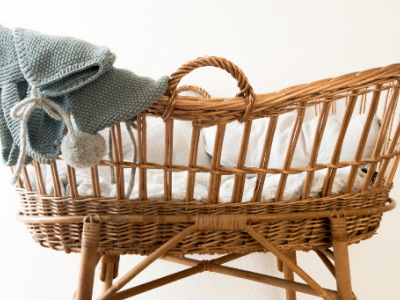
Tips for new mums
Some encouraging advice from one mum to another.
Before becoming a mother, I knew a lot about parenting: I ran parenting seminars, did psychology research on the topic and read countless parenting books for work. But none of that prepared me for the ‘real deal’, especially those difficult early months. As I reflect on my own experience, here are some things I wish someone had told me.
Trust that God is the healer
I naturally expected that childbirth would be difficult. But what surprised me was that post-birth recovery is also no walk in the park. Despite having had a natural birth, my body ached all over: stitches needed time to heal, breasts were sore and engorged, joints were painful, and postpartum bleeding was an added discomfort. For women who have a caesarean birth, the recovery is even longer and harder.
So this is the time to get all the help you can—don’t try to do it all. If your spouse, parents, parents-in-law, friends and church family can help with caring for the baby and/or household chores, accept it without feeling guilty. You have just given birth! Embrace the fact that it takes a village to raise a child. In my Chinese culture, new mothers go through a whole month of ‘confinement’, where they focus on resting and caring for their baby while family members take care of household duties. I found this really helped my physical recovery.
Above all, trust that God will heal you over time. Childbirth pushes our bodies to the limit, but God has also designed our bodies to recover. From my experience, the stitches will heal and the pain will lessen; if you’re breastfeeding, it will become easier and more comfortable; eventually, you will recover your strength and feel some semblance of your ‘old’ self again. God cares for you in your physical vulnerability and is restoring you day-by-day.
Be gracious to yourself as you learn
Parenting involves jumping in at the deep end and learning on the job (perhaps the most challenging job of all!). As my newborn was placed in my arms after birth, my ‘work’ began almost immediately as the midwife helped me to nurse my baby. But breastfeeding, to my surprise, didn’t come easily—it required hard work and perseverance through pain and discomfort. I know that bottle-feeding has its challenges too.
My baby also cried often—in the bath, in the car, in the stroller and at sleep time. (Weren’t babies meant to sleep peacefully in their bassinets like little angels?!) Her helpless crying made me feel like I was failing at motherhood, especially since I was supposed to be a parenting ‘expert’!
We need to give ourselves a lot of grace as we learn to parent (and thankfully, small children are very forgiving). Nursing, bathing and settling a baby are all skills that take time to master. In fact, as parents we will never stop learning as our children grow and mature. May we continue to ask God for wisdom and guidance in knowing how to care for the children he has entrusted to us.
Slow down and pray
Having a new baby slows us down in some respects. Other responsibilities, such as work, socialising or church commitments, can fade into the background while we focus solely on caring for our little one. We spend many hours nursing and doing repetitive tasks like changing nappies, burping, bathing, holding and rocking our babies. We can prayerfully lean into these times, turning moments of joy, wonder, love, fear, loneliness and overwhelm into prayer.
I remember the many hours I spent nursing my baby in the quiet of the night. As I sat there staring at my daughter’s face in love and wonder, I would praise God for the blessing of this new creation. Those long hours of the night were also opportunities to pray—for my baby, for my role as a mother, for my family and for the other people in my life. In moments of struggle, such as trying to settle my baby, I would ask God for help in knowing how to attend to my daughter’s needs. In the day-to-day life of a new mother, there are many moments to express our prayerful dependence on our God.
Remember it’s a season
Solomon wrote:
There is a time for everything, and a season for every activity under the heavens: A time to be born ... a time to weep and a time to laugh ... (Ecclesiates 3:1–2a; 4a).
Perhaps we can add: a time of sleepless nights and a time of newborn cuddles; a time of cluster feeding and a time to bond; a time of smelly nappies and a time for sweet smiles; a time to be productive and a time to be a mother.
When we feel like weeping in the trying times, it may be helpful to remember that ‘this too shall pass’. Those sleepless nights won’t last forever, and neither will your baby stay small forever. May God help us to be faithful in every season.
Get to know your baby
For the modern parent, there are so many resources out there—apps, websites, books and podcasts to explain your baby’s behaviour. While all of these can be helpful, your best instruction book is your baby. First and foremost, try to read your baby and follow his or her particular needs.
God has made our babies unique—knitted together in our wombs, they are fearfully and wonderfully made (Psalm 139:13–14). We should strive to be good students of our babies. For example, some babies are easygoing, others are more sensitive; some babies like to be held, others prefer to sleep in their cot; and some babies are outgoing, others are timid. Observe your baby closely, spend time with them, and get to know and appreciate their specific personality and needs.
Love your baby
Lastly, but not least, love your baby! Cuddle, kiss and hold your baby as much as you can. Tell them that you love and delight in them. You can never spoil a baby with love and affection. Love them because babies need our love for healthy development. Love and treasure them because they will only be babies for a little while. Love them because God loves our babies—and they belong to him. Love them because that is how our heavenly Father loves us.
See what great love the Father has lavished on us, that we should be called children of God! (1 John 3:1a)
The early days of motherhood are very challenging, but our loving heavenly Father is always there to heal, strengthen, comfort and guide us through.
If you are struggling to connect with your baby and have lasting feelings of depression and/or anxiety, this could be an indication of something more serious such as postnatal depression and/or anxiety. Please seek professional help such as The Gidget Foundation (https://gidgetfoundation.org.au 1300 851 758).
---
Dr Yixin Jiang Xu is a stay-at-home mother of a two-year-old girl and has a PhD in psychology. She runs family education seminars at First Light Care —a Christian counselling and education organisation serving the Chinese community. She and her family attend St Paul’s Anglican Church, Carlingford.
For more articles from Growing Faith, subscribe to our monthly e-newsletter.
To hear about the latest books and resources from Youthworks Media, subscribe here.








